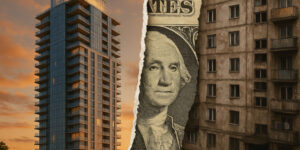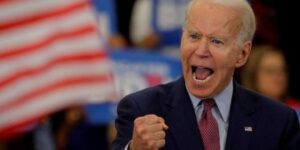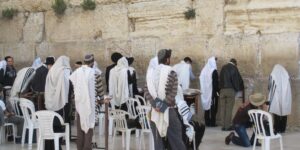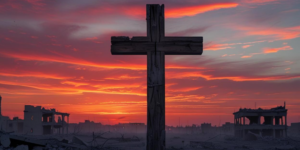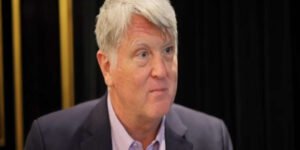Multiethnic Faith Leaders Hold Press Conference on the Church’s Role in Healing Racial Divide
On the 54th anniversary of Dr. Martin Luther King Jr.’s historic March on Washington, faith leaders from all ethnic backgrounds, as part of the Reconciled Church Movement, held a press conference today at the National Press Club to discuss the church’s role in healing our nation’s racial divide.
The theme of the event was repentance for personal and corporate apathy in the face of racism.
“Racism is America’s original sin,” said Bishop Harry Jackson, co-convener of the Reconciled Church Movement. “Throughout the history of the church, too little has been done to overcome this sin. Although we believe there have been courageous efforts, by people like Christian Abolitionists, civil rights leaders and social activists, the American church has never reached the critical level of engagement and unified action to end the influence and reign of terror of racism in our nation.”
Jackson unveiled a threefold plan that encourages other faith leaders and individuals to participate in a 40-day fast beginning Aug. 29 to pray for the cessation of racially motivated violence and creation of jobs to return to economically distressed urban and rural areas, sign and support the Justice Declaration of Prison Fellowship to focus on restoring the opportunities of returning citizens who have served their time in jails and prison and initiate local Prayer and Reconciliation Rallies in the nation’s top 20 cities based on the Reconciled Church Model.
During the opening remarks, Evangelist Alveda King, pastoral associate and director of Civil Rights for the Unborn, the African-American Outreach for Priests for Life, and niece of Dr. Martin Luther King Jr., reflected on the six principles of non-violence, which she learned from her uncle, her father and her grandfather, and encouraged attendees to “find strength and agape love to turn the other cheek as Jesus taught us.”
“We are one race and one blood,” said King. “We continue to see ourselves as separate races or think that God made us into different races, but we are one blood and one human race in America and all over the world. If you cut any of us, that blood’s going to be red, and we all need the blood of Jesus.”
The press conference occurred just hours prior to another group of faith leaders gathering at the Martin Luther King Jr. Memorial with the National Action Network’s Ministers March for Justice in Washington led by Rev. Al Sharpton and meant as a protest to the government’s recent response to events in Charlottesville, Virginia.
“We’re here in the spirit of Martin Luther King Jr. We’re not here as political leaders,” said Rev. Mark Gonzalez, founder of the United States Hispanic Prayer Network and the United States Hispanic Action Network. “We’re here as spiritual leaders, speaking to the issues of the day. We’re not looking to the president [to fix this], even though he has a role. We’re not looking to the government, even though it has a role. We’re looking to God and to the church—the only agent that has been anointed by God to transform society.”
Dr. Jim Garlow, senior pastor at Skyline Church in San Diego, California, and member of President Trump’s Faith Advisory Board, shared about his own experience in meeting with pastors of all ethnicities to understand the depth of their collective pain. “The fact remains that we have not resolved the fundamental issues of racism in America,” he said.
“It’s not an option to do nothing,” said Frank Amedia, co-founder of Touch Heaven Ministries, co-founder and chairman of POTUS SHIELD and senior pastor of Touch Heaven Church in Canfield, Ohio. “If we do nothing, it’s not that nothing will happen. The consequences will compound, and we will continue to pass the sins of the fathers to the next generation.”
During a question and answer time, the topic of the removal of Civil War monuments was brought up. King said her uncle would say all the statues come close to being idols.
Dr. Mike Hayes, founding pastor of Covenant Church in Dallas and founder and president of Churches in Covenant International (CIC), said, “I believe some of them [monuments] are better served to be in a museum to remember our history rather than a town square to remember our hate.”
The press-conference panelists represented a multiethnic group, including Rev. Charles Huang, who spoke about racial stereotypes from an Asian-American perspective.
“I think we all have some forms of racism due to our lack of knowledge and understanding of other people groups,” said Rev. Charles Huang, founder, president and CEO of Roots & Branches International Ministries. “Honoring other people is a very important key to racial reconciliation. Let us be more willing to learn from other people who are different from us.”
Additional guests who spoke at the press conference included Bishop George McKinney, Ph.D., D.D., founder and pastor of St. Stephen’s Cathedral Church of God in Christ in San Diego, California; Ted Hayes, a direct descendant of the renowned Buffalo Soldiers, who address the injustices of racism in America; Pastor Herman Martir, senior pastor of the Nations Worship Center in Fort Worth, Texas, director of HELP International and the Global Transformation Resource Group and president of Emerging Leaders International; Dr. Day Gardner, founder and president of The National Black Pro Life Union and associate director of National Black Prolife Union; Mary Faus of All Tribes D.C., who represented Dr. Neigel Bigpond, a full-blood member of the Euchee Indian Tribe, evangelist, pastor and Apostle of Morning Star Church of All Nations; Craig DeRoche, senior vice president of advocacy and public policy for Prison Fellowship; and Mike Berry, founder and president of JustU Foundation, a teaching elder of Common Ground Friends in Annapolis, Maryland, and descendent of Maryland abolitionists.
Jackson also issued a declaration to appeal to heaven over the racism in our land.
He says:
Racism is America’s “original sin,” present at the very beginning of our nation. Likewise, throughout history, the Christian church too often has done too little to combat this grievous sin.
We, the undersigned, as Christian leaders express our sorrow to the citizens of the United States for not doing more to lead the way in healing our nation of the effects of this sin. We believe that despite the courageous efforts of Christian abolitionists, civil rights leaders and social activists, the American church has never reached the critical level of engagement and unified action to end the influence and reign of terror of racism in our nation.
Therefore, we repent of our failure to do more in the face of such a repugnant national sin. Christians can do better.
We believe that 2 Chronicles 7:14 and many other Scriptures set a precedent for believing that our God can heal our individual hearts, transform our churches, and help us unify to affect national change. We believe that the social reformation that must take place in America must be led by the church and be expressed locally.
We need grassroots initiatives following the pattern articulated by the Reconciled Church movement as seven bridges to peace. Naturally, we need government, business, law enforcement and community stakeholders to partner with us. The glue that will keep our nation together, though, is the church and faith leaders.
Specifically, we call for Christians everywhere to do three things:
1. Join us in a 40-day fast from at least 6:00 a.m. to 6:00 p.m. starting Aug. 29, 2017, and pray for three things: a. The cessation of racially motivated violence within our nation in the coming year, from Sept. 1, 2017 to Sept. 1, 2018. This would include citizen-on-citizen violence, police-versus-citizen violence and general anarchy in urban and rural areas. b. For jobs to return to economically distressed urban and rural areas, bringing uplift to the poor of every U.S. ethnic group. c. Support of this declaration by 30,000 clergy and 300,000 Christians.
2. Sign and support the Justice Declaration of Prison Fellowship to focus on restoring the opportunities of returning citizens who have served their time in jails and prison.
3. Initiate local prayer and reconciliation rallies in the nation’s top 20 cities based on the Reconciled Church model. Why have we gathered today? On the heels of the Charlottesville, Virginia incident, we believe the symbolic/prophetic significance of the anniversary of Dr. Martin Luther King Jr.’s March on Washington is important.
Additionally, it has occurred to the Reconciled Church planning team that the church has never fully renounced its complicity in the racial problems of America. We felt we must speak now—before the cultural waters become muddier and divisive rhetoric creates more violence. Therefore, as many groups come to Washington today, we have come to take responsibility for our nation back from the White House to the church house.
We have come to make an appeal to heaven to impact the heart of the church. We want to answer the violence of racism with the love of Jesus Christ. The year 1963 was noted for racial tension in America. Similar to our day, media coverage of police brutality against minorities was widely reported. Further, as Dr. King wrote his “Letter From Birmingham City Jail,” this work was a call for the church to lead the way in personal change. The goals of the 1963 march were protection for demonstrators against police brutality, significant civil rights legislation and the elimination of racial segregation in public schools. Our prayer today is that we will blow a trumpet from Washington, D.C., in 2017 that will be heard around the nation.
You can sign the petition here!
For a complete archived version of the press conference, visit the Reconciled Church Facebook page at https://www.facebook.com/thereconciledchurch















